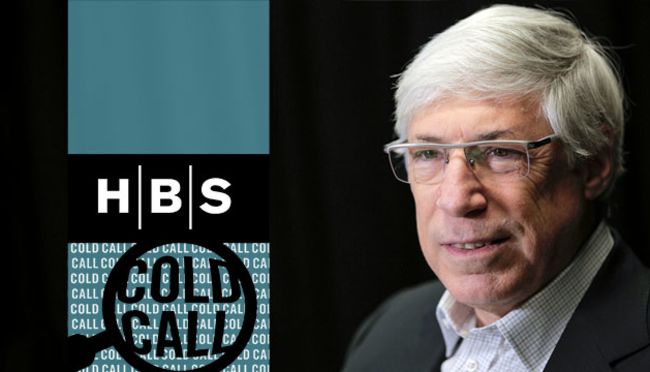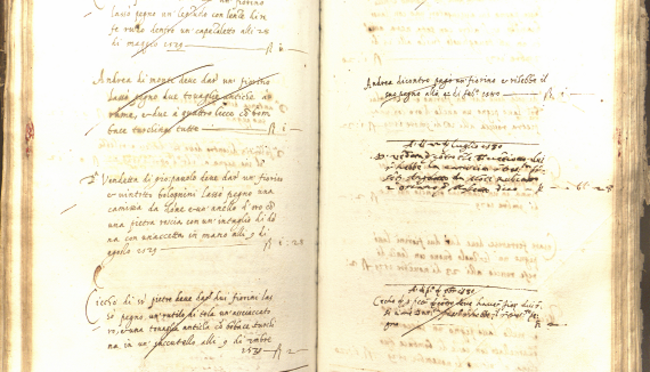Italy →
→

- 14 Jul 2020
- Research & Ideas
Restarting Under Uncertainty: Managerial Experiences from Around the World
A survey of 50 companies across countries and industries reveals business leaders are hard at work adapting to the COVID threat. Research by Raffaella Sadun and colleagues. Open for comment; 0 Comments.

- 21 Mar 2019
- HBS Case
The Ferrari Way
Secretive sports car maker Ferrari opens up to Stefan Thomke about how it has bucked industry trends to achieve success. Open for comment; 0 Comments.

- 05 Apr 2018
- Cold Call Podcast
How a Coal Polluter Became a Renewable Energy Leader
Enel, Italy’s state-owned power company, was one of Europe’s largest coal users and polluters. Now it is recognized as a leader in renewable energy services. Mark Kramer discusses how CEO Francesco Starace drove the huge strategy shift. Open for comment; 0 Comments.

- 29 Nov 2017
- Research & Ideas
How to Succeed in Business (According to a 15th Century Trade Merchant)
Does a 15th century Italian merchant have something to teach leaders about the proper ways to conduct business? Sophus Reinert and Dante Roscini discuss the first English translation of The Book of the Art of Trade. Open for comment; 0 Comments.
- 13 Jun 2016
- Lessons from the Classroom
That's Classic: Modern-Day Business Lessons from Ancient Rome
What can MBAs learn from the Roman emperors Tiberius and Claudius? All Roads Lead to Rome, a course taught by HBS professor Frances Frei and Harvard history and classics professor Emma Dench, surfaces insights into the age-old issue of leadership. Open for comment; 0 Comments.
- 02 May 2016
- Research & Ideas
Why People Don’t Vote--and How a Good Ground Game Helps
Recent research by Vincent Pons shows that campaigners knocking on the doors of potential voters not only improves overall turnout but helps individual candidates win more of those votes. Open for comment; 0 Comments.

- 11 Feb 2016
- Working Paper Summaries
Do Interactions with Candidates Increase Voter Support and Participation? Experimental Evidence from Italy
Elections in established democracies regularly attract less than half of the voting-age population. This low electoral participation raises concerns for the overall legitimacy and stability of the democratic regimes. This study of a mid-sized city in northern Italy during the 2014 municipal elections finds that while volunteers’ visits increased participation by a significant 1.8 percentage points, surprisingly the candidates’ own visits affected neither the average voter nor any subgroup of the population, whether defined by age, gender, place of birth, or turnout history.

- 21 Jan 2016
- Working Paper Summaries
The Globalization of Angel Investments: Evidence across Countries
Examining a cross-section of 13 angel groups who considered transactions across 21 countries, this study finds that angel investors have a positive impact on the growth of the firms they fund, their performance, and survival, while the selection of firms that apply for angel funding varies across countries.
- 25 Apr 2011
- Research & Ideas
What CEOs Do, and How They Can Do it Better
A CEO's schedule is especially important to a firm's financial success, which raises a few questions: What do they do all day? Can they be more efficient time managers? HBS professor Raffaella Sadun and colleagues set out to find some answers. Closed for comment; 0 Comments.

- 31 Mar 2011
- Working Paper Summaries
What Do CEOs Do?
If time is money, as the old adage goes, then a CEO's schedule is especially important to a firm's financial success. This raises a fair question: What do CEOs do all day? To that end, researchers followed the activities of 94 CEOs in Italy over the course of a pre-specified week, enlisting the CEOs' personal assistants to track their bosses' activities with time-use diaries. Research was conducted by Raffaella Sadun of Harvard Business School, Luigi Guiso of the European University Institute, and Oriana Bandiera and Andrea Prat of the London School of Economics. Key concepts include: Compared with CEOs who work shorter hours overall, CEOs with longer workdays tend to devote more time meeting with other employees within the company and less time meeting with outsiders. The better the firm's governance structure, the more likely it is that a CEO will spend more time meeting with insiders than outsiders. The findings show a strong correlation between hours worked and productivity—a 2.14 percentage point increase in productivity for every one percentage point increase in hours worked. That positive correlation is driven entirely by the time a CEO spends with company insiders. Time spent with insiders is correlated with profits; time spent with outsiders is not. A possible interpretation is that spending time with outsiders might be more beneficial to the CEO than to the firm. Closed for comment; 0 Comments.

Can Sustainability Drive Innovation at Ferrari?
When Ferrari, the Italian luxury sports car manufacturer, committed to achieving carbon neutrality and to electrifying a large part of its car fleet, investors and employees applauded the new strategy. But among the company’s suppliers, the reaction was mixed. Many were nervous about how this shift would affect their bottom lines. Professor Raffaella Sadun and Ferrari CEO Benedetto Vigna discuss how Ferrari collaborated with suppliers to work toward achieving the company’s goal. They also explore how sustainability can be a catalyst for innovation in the case, “Ferrari: Shifting to Carbon Neutrality.” This episode was recorded live December 4, 2023 in front of a remote studio audience in the Live Online Classroom at Harvard Business School.